Journaling for mental health improvement is not just a simple act of putting pen to paper; it is a transformative practice that holds the power to enrich our emotional well-being and nurture our inner selves. Imagine a tool so profound that it not only helps us track our thoughts but also illuminates the path to self-discovery and mental resilience. In the realm of holistic wellness, journaling stands as a beacon of hope and healing, guiding us through the labyrinth of our minds to a place of clarity and peace. Welcome to the journey of journaling for mental health improvement, where every written word is a step towards holistic well-being and self-empowerment.
The Importance of Journaling for Mental Health Improvement
In the realm of holistic wellness, journaling emerges as a powerful tool for enhancing mental health and overall well-being. Understanding the profound impact of journaling on mental health is key to unlocking its benefits for improved emotional and psychological wellness.
Benefits of Journaling for Mental Health
-
Emotional Release and Regulation: Journaling provides a safe space to express and process emotions, leading to emotional release and enhanced emotional regulation.
-
Stress Reduction and Anxiety Management: Through journaling, individuals can offload stress and anxiety, bringing about a sense of relief and calm.
-
Focus and Clarity: Engaging in journaling exercises promotes focus, clarity of thought, and aids in organizing one's mental landscape effectively.
How Journaling Supports Overall Well-being
-
Enhancing Self-awareness and Reflection: Regular journaling fosters self-awareness by encouraging individuals to reflect on their thoughts, feelings, and behaviors.
-
Tracking Patterns and Triggers: Journaling allows individuals to identify patterns in their mental health and recognize triggers that may impact their well-being.
-
Promoting Positive Thinking: By documenting positive experiences, expressing gratitude, and practicing self-affirmations, journaling cultivates a mindset focused on positivity.
By acknowledging the significance of journaling for mental health improvement, individuals can integrate this practice into their holistic approach to well-being, paving the way for a healthier and more balanced life.
How to Start Journaling for Mental Health Improvement
Embarking on a journaling journey for mental health enhancement requires thoughtful consideration and strategic planning. By following these practical steps, individuals can initiate their journaling practice effectively and reap the benefits for their overall well-being.
Choosing the Right Journaling Format
-
Free Writing vs. Prompts: Decide whether to engage in free-form writing or use guided prompts to structure your journal entries.
-
Digital vs. Traditional Journaling: Select the medium that best suits your preference, whether it's pen and paper or digital journaling platforms.
Establishing a Consistent Journaling Routine
-
Setting Aside Dedicated Time: Allocate a specific time each day for journaling to establish a routine that fits seamlessly into your schedule.
-
Finding a Quiet and Comfortable Space: Create a tranquil environment conducive to reflection and introspection to amplify the effectiveness of your journaling sessions.
Overcoming Common Journaling Challenges
-
Writer's Block and Perfectionism: Embrace imperfection and allow yourself the freedom to express without judgment to overcome writer's block and perfectionist tendencies.
-
Staying Committed in the Long Run: Maintain consistency in your journaling practice by setting achievable goals and reminding yourself of the positive impact it has on your mental health.
By navigating through these initial steps thoughtfully, individuals can lay a solid foundation for their journaling practice geared towards mental health improvement. For more inspiration on journaling techniques, you can explore this resource.
Integrating Journaling into Holistic Nutrition Practices
Incorporating journaling into holistic nutrition practices can amplify the benefits of both disciplines, leading to comprehensive well-being improvements. By intertwining the art of journaling with mindful eating and wellness tracking, individuals can deepen their self-awareness and enhance their mental health journey.
Mindful Eating and Journaling Connection
-
Documenting Food Choices and Feelings: Journaling allows individuals to record their food intake along with associated emotions, fostering an understanding of how diet influences mental health.
-
Identifying Emotional Eating Patterns: Through journaling, individuals can identify triggers for emotional eating habits, enabling them to cultivate mindful eating behaviors.
Creating a Holistic Wellness Journal
-
Incorporating Food Logs and Mood Tracking: Integrating food logs with mood tracking in a wellness journal provides insights into the relationship between nutrition and mental well-being.
-
Setting Health Goals and Reflection Points: By setting specific health goals and reflecting on progress through journaling, individuals can align their nutrition choices with their mental health objectives.
Implementing Positive Affirmations and Gratitude Practices
Enhancing journaling practices with positive affirmations and gratitude exercises cultivates a mindset of gratitude and self-empowerment. By infusing holistic nutrition practices with these powerful journaling techniques, individuals can create a harmonious approach to overall well-being.
Advanced Journaling Techniques for Mental Well-being
Exploring advanced journaling techniques can further enhance mental well-being and deepen the therapeutic benefits of journaling practice. By delving into visualization exercises, expressive writing, and manifestation practices, individuals can unlock profound insights into their mental health and emotional resilience.
Visualization and Manifestation Exercises
-
Setting Intentions and Visualizing Goals: By journaling about their aspirations and visualizing their desired outcomes, individuals can manifest a positive mindset and reinforce their mental health objectives.
-
Practicing Gratitude and Positive Affirmations: Incorporating gratitude journaling and affirmations into daily routines can shift perspectives towards a more optimistic and resilient outlook.
Expressive Writing for Emotional Processing
-
Writing Letters to Release Emotions: Through the act of writing expressive letters, individuals can release pent-up emotions, resolve conflicts, and foster emotional healing.
-
Processing Trauma and Negative Experiences through Writing: Journaling offers a safe space to process traumatic events and negative experiences, promoting emotional catharsis and resilience.
Engaging in these advanced journaling techniques empowers individuals to navigate complex emotional landscapes, cultivate a positive mindset, and bolster their mental health resilience. For further insights on holistic well-being, consider exploring articles from Health.com.
Monitoring Progress and Seeking Professional Support
Tracking progress in journaling practices for mental health improvement is crucial for recognizing patterns, evaluating growth, and determining the effectiveness of interventions. Additionally, being attuned to when professional mental health support is needed is essential for holistic well-being and comprehensive care.
Using Journaling as a Mental Health Tracking Tool
-
Noting Changes in Mood and Behavior: Recording shifts in mood, behavior patterns, and emotional responses in a journal provides valuable insights into mental health fluctuations and triggers.
-
Recognizing Patterns and Triggers: Identifying recurring themes or triggers through journaling enables individuals to proactively address underlying issues impacting their mental well-being.
Knowing When to Consult a Mental Health Professional
-
Identifying Signs that Journaling is Not Sufficient: If persistent mental health challenges or symptoms persist despite journaling efforts, it may be an indication that professional support is necessary.
-
Seeking Therapy or Counseling for Deeper Support: When journaling alone may not suffice, seeking the expertise of mental health professionals can offer tailored interventions and therapeutic guidance for optimal mental wellness.
By integrating journaling as a mental health tracking tool and recognizing the signs that warrant professional intervention, individuals can navigate their mental health journey with awareness, resilience, and access to appropriate support resources. For further guidance on mental health resources, consider exploring Mayo Clinic's website.
FAQ Section: Common Questions About Journaling for Mental Health Improvement
1. How often should I journal for mental health improvement?
To experience the benefits of journaling for mental health improvement, consistency is key. Aim to journal daily or at least a few times a week to maintain an ongoing practice that supports emotional regulation and self-reflection.
2. Can I mix art or creativity with my journaling practice for mental health benefits?
Absolutely! Incorporating art, creativity, or even doodling in your journaling can enhance self-expression, spark creativity, and provide a therapeutic outlet for emotions, further contributing to your mental health improvement journey.
3. What if I struggle to express my thoughts or feelings in writing?
If you find it challenging to articulate your thoughts or emotions through writing, consider alternative journaling methods such as drawing, voice recording, or using prompts to kickstart your reflective process and gradually build comfort with self-expression.
4. How can journaling complement professional mental health treatment?
Journaling can serve as a valuable adjunct to professional mental health treatment by providing insight into your emotional landscape, tracking progress, and facilitating communication with therapists or counselors about your thoughts and experiences outside of sessions.
5. Are there specific journaling techniques that work best for mental health improvement?
While various journaling techniques exist, such as gratitude journaling, expressive writing, or visualization exercises, the most effective technique is one that resonates with you personally. Experiment with different approaches to discover what supports your mental health journey best.



